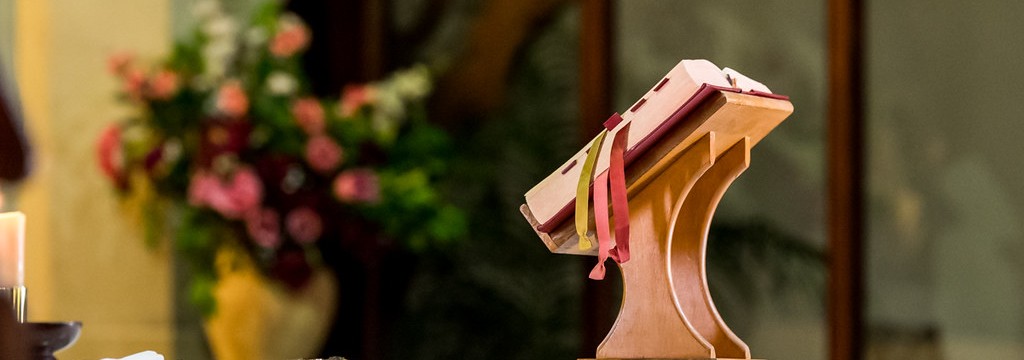Preparing and Celebrating Liturgy
National Liturgical Council

1. PROCESS FOR PREPARING LITURGY
- The readings in the Lectionary and the liturgical texts (prayers, preface, blessings, etc.) in the Roman Missal are the starting point for all liturgical preparation.
- Make selections from optional texts and compose variable texts where appropriate.
- Communicate decisions to the appropriate liturgical ministers and the assembly.
- Keep a record of decisions, tasks & person responsible.
2. PLANNING CHECKLIST
- order of service
- texts: readings & prayers
- music and song
- worship aids (booklets, PP slides, copyright, etc)
- liturgical art, worship environment
- symbol
- gestures and movement
- silence
- assembly
- liturgical ministers
- link liturgy with life
- look at overall rhythm & flow
3. PRINCIPLES OF GOOD LITURGY
- Liturgy is always an act of praise of and to God.
- The ‘theme’ of every liturgy is the paschal mystery.
- The aim to be considered before all else when preparing and celebrating liturgy is that everyone present can participate fully, consciously, actively.
- Christ is present whenever liturgy is celebrated in the people assembled for worship, in the scriptures proclaimed, in the consecrated elements, and in the person of the ordained presider.
- Liturgy is a ritual activity. That means there are set patterns and familiar cues and responses.
- Liturgical symbols should be large and clear.
- Liturgy is not a performance or entertainment.
4. SOME TIPS
- Start with the Who, What, Where & Why of the Celebration
- The rules for writing Prayers of the Faithful (intercessions) are
(1) Keep it simple and brief.
(2) Remember that the prayers are not addressed to God; rather, they are intentions that the faithful are being invited to pray for. For this reason, the words ‘you’ and ‘your’ should not occur.
Correct example: For all experiencing persecution, that God will preserve them from harm, give them strength, and help them to witness to God’s love and faithfulness.
Incorrect example: We pray for all broken families. Fill them with your grace, that aware of your love for them, they may desire to work towards reconciliation with their loved ones.
- All liturgy follows the ritual model of Gather/Listen/Do/Go.
- Use the foolproof YOU/ WHO/ DO/ THROUGH pattern to write ‘collects’.
- Use words and responses that people know so you won’t need to give them the script.
5. DEFINITIONS
- LITURGY – The Official Communal Worship of the Church
- PRAYER – Personal communication or petition addressed to a deity, esp. in the form of supplication, adoration, praise, contrition, or thanksgiving. (Collins Dictionary, emphasis added).
- RITUAL – The prescribed or established form of a religious or other ceremony. (Collins Dictionary)
- EUCHARIST – A Greek word meaning ‘thanksgiving’. In celebrating Eucharist, we join with Christ in giving thanks to God. Every Eucharist celebrates and gives thanks for the ‘paschal mystery’ – the life, death and resurrection of Jesus Christ.
- MASS – The most common form of liturgy celebrated by the Catholic Church. It consists of two major and equally important parts – the Liturgy of the Word and the Liturgy of the Eucharist.
